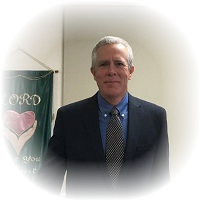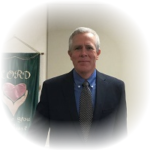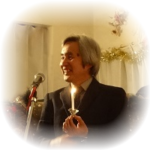↓Audio link to the sermon:(1nd worship recording)
(If you can’t listen on your iPhone, please update your iOS)
This passage is the climax of what I would suggest is the most important chapter in the entire book of Acts and surely one of the most important chapters in the whole bible.
Peter was one of the twelve disciples and was more or less the leader among those twelve.
Jesus even anointed him as the rock upon which he would build the church.
Roman Catholic tradition holds that Peter was the first pope.
Of course Peter was not without his faults and weaknesses.
Many times in the gospel accounts we see him fail.
When he tried to walk on water he failed.
When he reprimanded Jesus for predicting his own death he failed.
And most significantly, on the night when Jesus was arrested Peter got scared and denied even knowing Jesus three times… he failed.
Yet this is the one who Jesus appointed as leader of the church.
That is just like Jesus isn’t it… picking people you and I would never pick, to do important work for the kingdom!
But to his credit, Peter was an earnest person.
And he took his faith very seriously.
I probably should point out something here.
When reading the New Testament it is easy to get the impression that somehow Jesus and the disciples were opposed to Judaism.
You know… Jesus vs. the Pharisees, Jesus vs. the Sadducees, Jesus vs. the High Priests, the crowds in Jerusalem screaming, “crucify him, crucify him!”…
Over time those who followed Jesus and believed that he was the long awaited messiah came to be known as Christians.
At some point in history Christianity came to be known as a separate religion from Judaism.
In the same way some 600 years later, Christians who chose to follow the teachings of the prophet Mohamed eventually came to be known as Muslims.
In our world today Judaism, Christianity and Islam are understood by everyone to be three distinct and separate religions.
But in the first century, the time when the events recorded in the book of Acts took place, the great majority of those who followed Jesus considered themselves to be 100% Jewish.
And by that I am not only speaking about ethnicity, but religious faith.
Jesus, Peter and all of the apostles were earnest followers of the Jewish religion.
For Peter and the other disciples, it was their faithful commitment to the Jewish faith that motivated them to follow Jesus.
They all considered it extremely important to follow the teachings of the Jewish faith.
They knew God thru the teachings of Judaism.
They fully believed that the Torah and the Tanakh, what we know as the Old Testament, was 100% the word of God.
They believed that the only way to follow God was to follow the teachings of those sacred scriptures.
When we, as 21st century Christians, read the Old Testament we do so with a particular filter.
We also consider the Old Testament to be a part of the Word of God, but we apply that filter to our reading of it.
So when we read all of the very specific commands and prohibitions of the Old Testament we interpret many of those to have been specifically for a selected group of people in a time frame that is rather distant from our own.
If we didn’t, we would all be found guilty of not obeying God’s commands.
Men who shave their beards would be found guilty.
Women who have short hair or don’t wear head coverings when worshipping God would be found guilty.
People who marry individuals of a different race would be found guilty.
People who eat pork, horse meat, and any kind of shell fish such as clams, oysters, shrimp or crab would be found guilty.
And most significantly, anyone who didn’t offer the correct animal sacrifices when repenting of sin would be found guilty.
So we read those portions of scripture with our own filters and conclude that they don’t directly apply to us even though they are a part of God’s Word.
But for the followers of Jesus we read of in the four gospels, things were very different.
They were Jews… followers of the Jewish religion and as such, those rules applied directly to them.
They held to those rules and prohibitions just as fervently as we hold to the Ten Commandments or the command of Jesus Christ to love God and to love our neighbors.
There was no room for negotiation on those points.
God’s word was perfectly clear… and the only option was to obey or be found guilty before God.
This was the world in which Peter lived.
This was the faith by which Peter lived.
This was the only path to pleasing God for Peter.
Earlier I said that the tenth chapter of Acts is one of the most important chapters in the entire Bible.
The reason I believe that to be the case is because in this chapter we read of an experience that completely changed Peter’s understanding of God.
Peter was born into the Jewish religion and chose to follow it faithfully.
Meeting Jesus and coming to believe that he was the messiah didn’t change Peter’s commitment to his Jewish faith at all.
In fact, it only strengthened it because he correctly believed that Jesus was the fulfilment of prophecies found in God’s Word.
But then Acts chapter 10 happened… and everything changed.
In this chapter we read of God’s vision revealed to Cornelius, a Roman soldier who, while not ethnically Jewish, was a faithful believer in the God of Judaism.
God commanded him to send for a man named Simon Peter who was staying in the home of Simon the tanner in the city of Joppa.
Cornelius obeyed that command and sent his servants to meet and bring to him this man named Simon Peter.
As they were on their way to Joppa God revealed a vision to Peter.
It was a shocking vision to say the least.
READ v.9-16
In Peter’s vision God told him to ignore many of the very clear rules as they were set out in God’s Word.
As Christians, we are not accustomed to taking dietary restrictions very seriously, but to this day many followers of other religions take them extremely seriously.
This includes Jewish people, Muslim people, Hindi people and even some Buddhist people.
We can only imagine how confusing this vision must have been for Peter.
In fact it says in v.17 that Peter was “wondering about the meaning of the vision”.
Was it just a dream?
Was it because he was hungry?
How could this possibly be from God?
It just doesn’t make any sense!
But then the Spirit spoke to him.
READ v.19-20
Peter decided to meet those men whom Cornelius had sent to get him.
He heard their invitation and decided to go with them to Cornelius’ home in Caesarea.
He still wasn’t sure what it all meant but he decided to go anyway.
When he got there the first thing he asked Cornelius was, “why did you send for me?”.
Cornelius told Peter of the vision he had seen and it finally clicked for Peter.
Beginning in v.34 Peter starts to share with them and the first thing he says is, “I now realize how true it is that God does not show favoritism.”
That may sound sort of obvious to us, but you have to realize that it went against everything Peter had been led to believe his entire life.
As a devout follower of the Jewish faith, he believed that the very core of truth was that the Jews were God’s chosen race.
That God had chosen to reveal Godself to humanity thru the Jewish people.
That they were different from all other people because God had chosen them.
But now… thru Peter’s profoundly disturbing vision and his encounter with the gentile Cornelius, Peter has no choice but to fundamentally adjust his understanding of God.
“I now understand…”
Peter’s world was turned upside down!
Peter’s understanding of God was radically altered!
Peter’s faith was irreversibly changed!
“I now understand…”
This is probably the longest preface I have ever had in a sermon but finally this brings us to today’s passage.
Peter went on to preach a sermon about his faith in Jesus Christ and we have a very brief summary of that sermon in vs. 34~43.
As we have read in the first verse of today’s passage, even as Peter was preaching, the Spirit of God fell on those who were listening and they began to speak in tongues and praise God!
Some of Peter’s friends and fellow believers had accompanied him on this trip and vs.45 says they were astonished!
READ v.45
But Peter holds his ground and immediately suggests that these new believers should be baptized, even though they were Gentiles.
Jesus’ final command was to go throughout the world and make disciples, baptizing them in the name of the Father, Son and Holy Ghost.
So Peter was just following Jesus’ command, but this was the first case in which gentiles were actually baptized.
It had never been done before!
READ v.48
The core of today’s reading seems to be that God’s plans are always bigger than our own.
As humans we are always limited in our view and understanding of God.
We simply aren’t able to comprehend a God who surpasses our human limitations in every way imaginable.
As a result we end up making, or trying to make God much smaller than God really is.
But the truth as revealed in scripture is that God is bigger than we can ever imagine.
God’s plans are bigger than we can ever realize.
God’s love for humanity and all of creation breaks thru all the boundaries that we try to impose.
To be fair, those boundaries we impose on God are usually a result of our sincere attempts to faithfully follow God’s Word.
Just like it was for Peter and his understanding of God’s Word.
But then God sometimes makes revelations to us that somehow seem to contradict our deeply held understanding of God’s Word.
And in every case the underlying truth is that God is bigger.
God’s love is wider and deeper.
God’s love extends further than we can imagine.
As we approach the end of this year’s Easter season our text reminds us that this is the message of Easter.
If there was ever any question of what Easter means for us, and for the entire world, this is where we find the answer.
The power of the risen Christ reaches far and wide.
Through Christ’s resurrection the door has been opened for all of humanity.
We are all created in God’s image and are invited to recognize our creator.
The path to reconciliation with God begins at the foot of the cross, then proceeds to the empty tomb.
And now, by the uncontrollable power of the Holy Spirit, is ever spreading throughout Judea, Samaria and to the ends of the earth.
God Almighty, we ask for forgiveness.
As painful as it may be, we ask that you reveal to us today the ways in which we have tried to make you smaller than you really are.
Lord, open our hearts and open our eyes.
Allow us to see you for who you really are, so that we might be able to echo Peter’s words…
Now I understand…
Amen.
(If you can’t hear from the bar above, click the blue button)
iPhone





 日本語
日本語